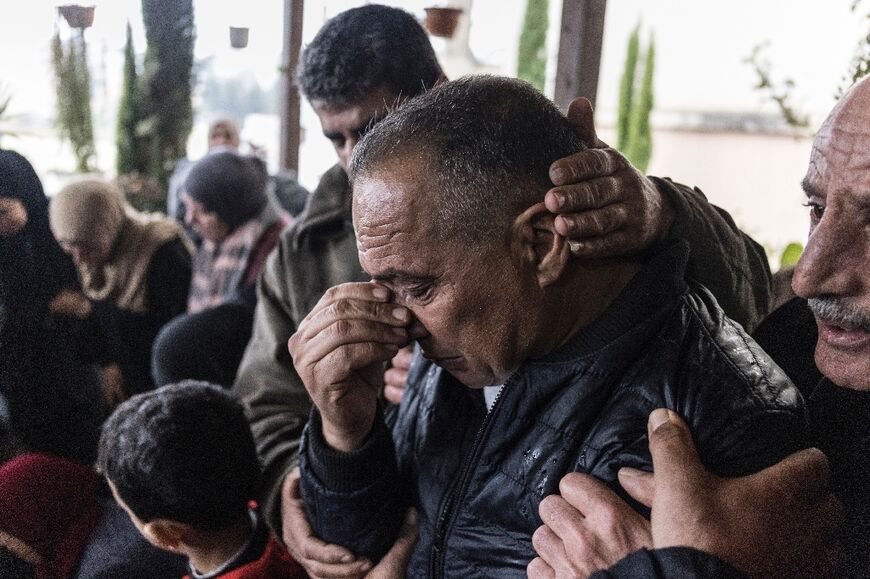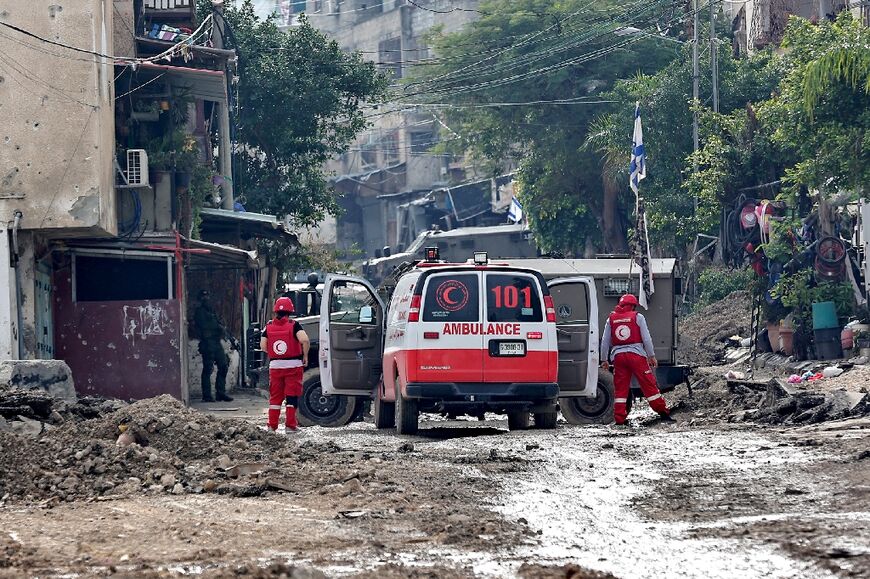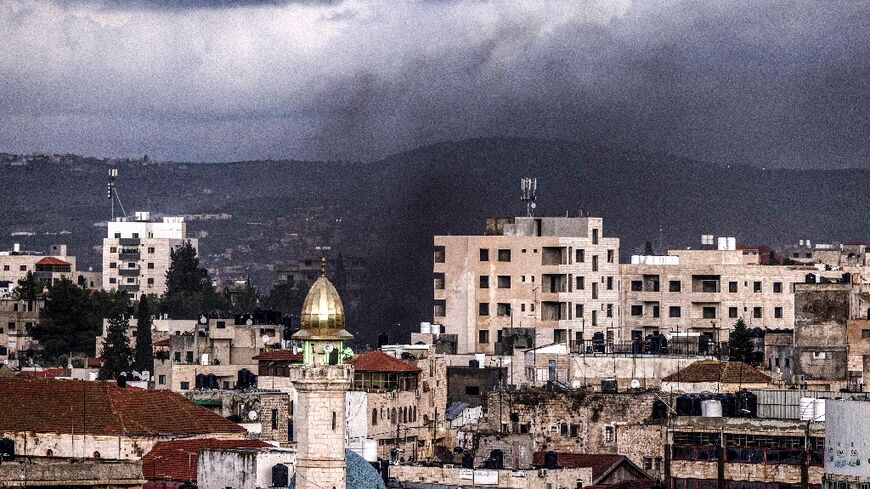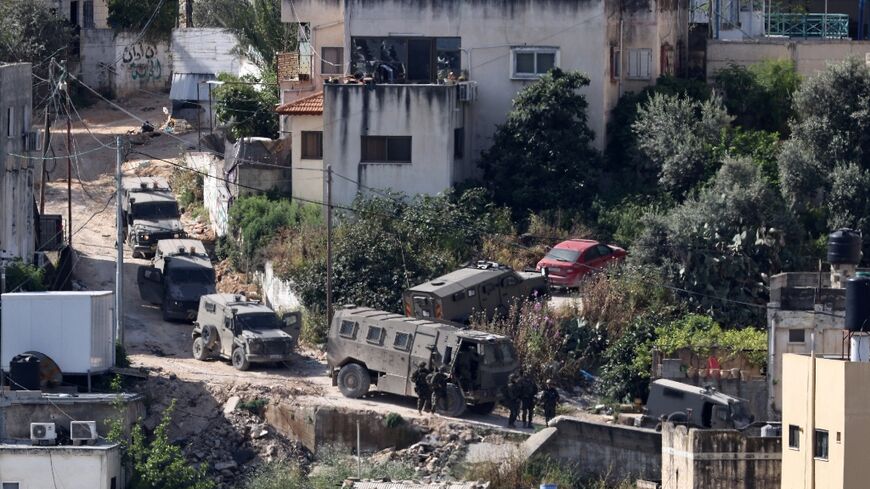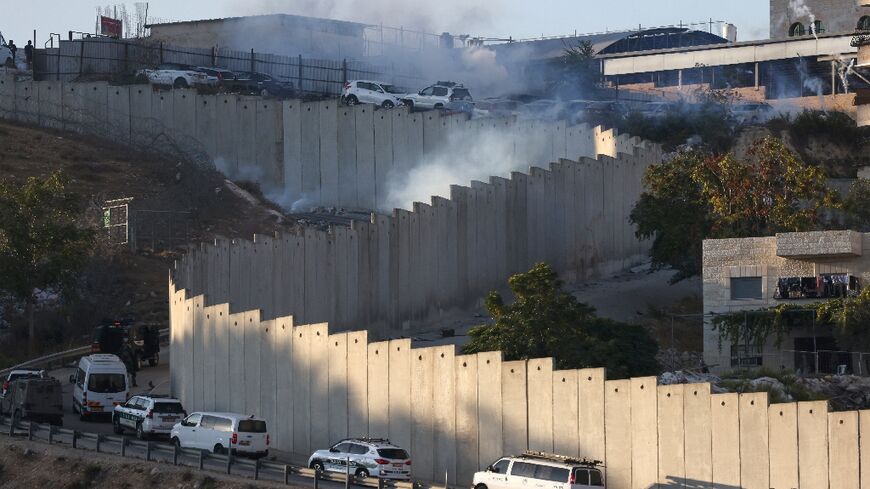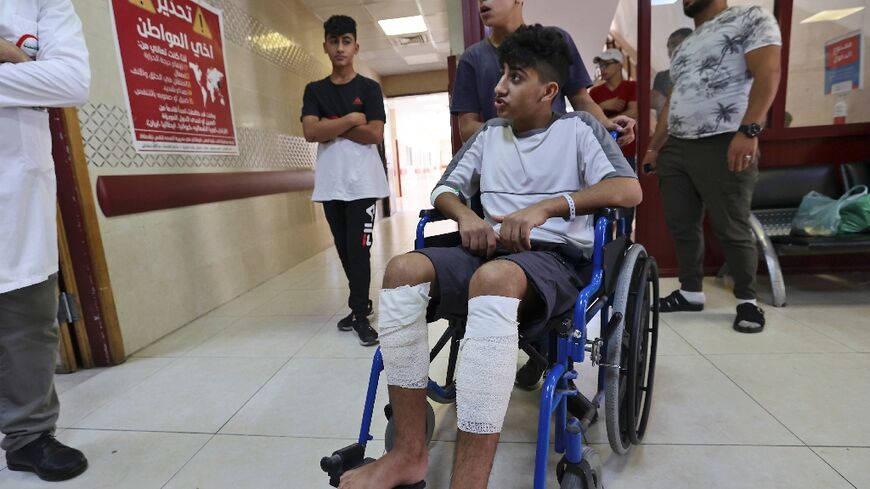West Bank medics lose precious time to save Palestinian lives
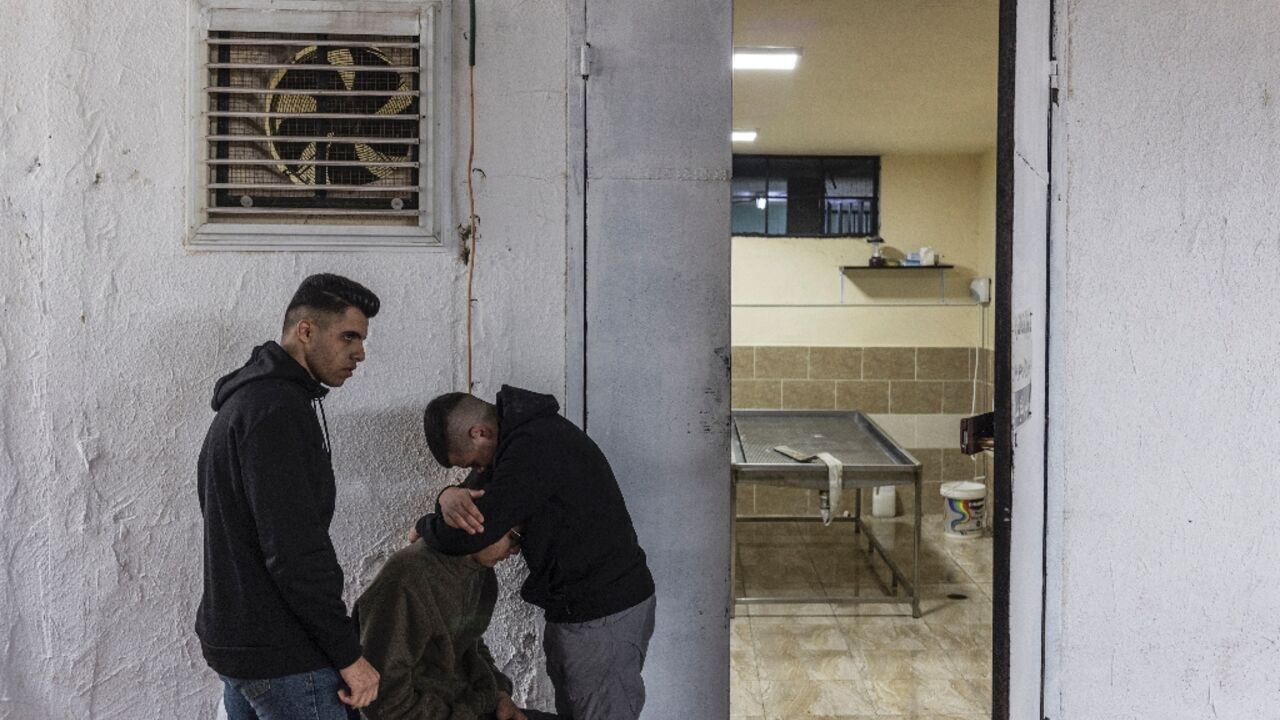
Yamen Mohammed Husseti, 16, bled to death in an alley after being shot during an Israeli raid on his occupied West Bank village, where witnesses say troops prevented medics from reaching him.
The teenager's death is one of a growing number of cases in which first responders say Palestinians were denied life-saving medical attention due to stricter movement restrictions imposed by Israel since the start of its war with Hamas.
After Husseti was shot in the stomach earlier this month in the northern West Bank village of Arraba, an ambulance driver called to the scene and residents who were there said they had been stopped by Israeli soldiers.
Paramedic Anwar Arttaya said his ambulance was repeatedly shot when he tried to reach Husseti.
Said al-Ardah was one of several residents who tried to approach the writhing teenager, he recalled, but soldiers pointed M16 rifles at them and "surrounded the body for half an hour".
"Yamen was screaming ... I was helpless," he told AFP at the morgue.
When asked for comment on the incident, the Israeli army told AFP that troops were responding to "explosives" thrown by "a terrorist", and "were not aware of any shooting at ambulances".
Husseti was buried the following day in the rain, his clean-shaven face wrapped in a red keffiyeh scarf.
Access denials and delays, as in Husseti's case, were wasting "golden minutes" that could save lives, said rescuer Abdulrauf Mustafa.
- 'Extreme fear' -
Israel has occupied the West Bank since 1967 and its troops regularly carry out incursions into Palestinian communities.
But the raids have escalated, increasingly lasting several days accompanied by air strikes, since the start of the Israel-Hamas war October 7, sparked by attacks launched from Gaza by the Palestinian militant group.
As fighting has raged for nearly four months in the besieged Gaza Strip, more than 370 Palestinian have been killed in the West Bank by Israeli troops and settlers, according to the Ramallah-based health ministry.
The growing violence coupled with more restrictions on movement -- already a systemic problem even before the war -- meant more Palestinians were getting hurt but first responders were increasingly struggling to help.
"My life as a paramedic has been marked by extreme fear of Israeli soldiers," said Arttaya.
To him, the recent months have been even worse than past "horrors" etched on his memory.
Between October 7 and January 19, the Palestinian Red Crescent Society has documented 154 incidents of Israeli forces impeding the work of its teams in the West Bank and annexed east Jerusalem.
The Israeli military said it was "obligated" to inspect ambulances, charging that "terrorists are hiding" there and near hospitals.
But troops were "trying to minimise delays as much as possible", it added.
The army's operations impact people beyond those wounded in the violence, said Wissam Baker, a hospital director in the city of Jenin.
Patients with chronic illnesses, for example, "could not come because there were military vehicles or fighting" blocking their way to the hospital, he said.
- 'Injustice' -
Doctors Without Borders aid group has mobilised more of their mobile clinics across the West Bank in the hopes of helping more people in hard-to-reach areas.
In mid-December, Ahmad, a 13-year-old boy with immunodeficiency, awoke to severe stomach pain, right as an Israeli military raid began in the nearby Jenin refugee camp, a hub of Palestinian militant groups.
"Ahmad said 'I can't move anymore, I have trouble breathing', but I didn't know what to do," his father, Mohammed Asaad Sammar, recalled in tears.
"There was no hospital" near their village of Al-Yamun other than in Jenin, in the West Bank's far north, said Sammar, a 56-year-old telecommunications technician.
"I told him to wait until the soldiers leave," he added, but the raid lasted hours and they had no time to waste.
The drive to the hospital took 25 minutes instead of the seven it would normally take.
Faced with a build-up of ambulances in front of the hospital prevented by Israeli troops from moving forward, he had to continue on foot.
Photos showed the father walking towards an armoured vehicle parked at the entrance to the hospital, carrying his limp son in his arms.
When they finally managed to reach the hospital, doctors were not able to save Ahmad.
"Losing your son because you can't get him to the hospital... it's an injustice," Sammar lamented.
In the West Bank, as in war-battered Gaza, "they are killing people in cold blood," he said.


